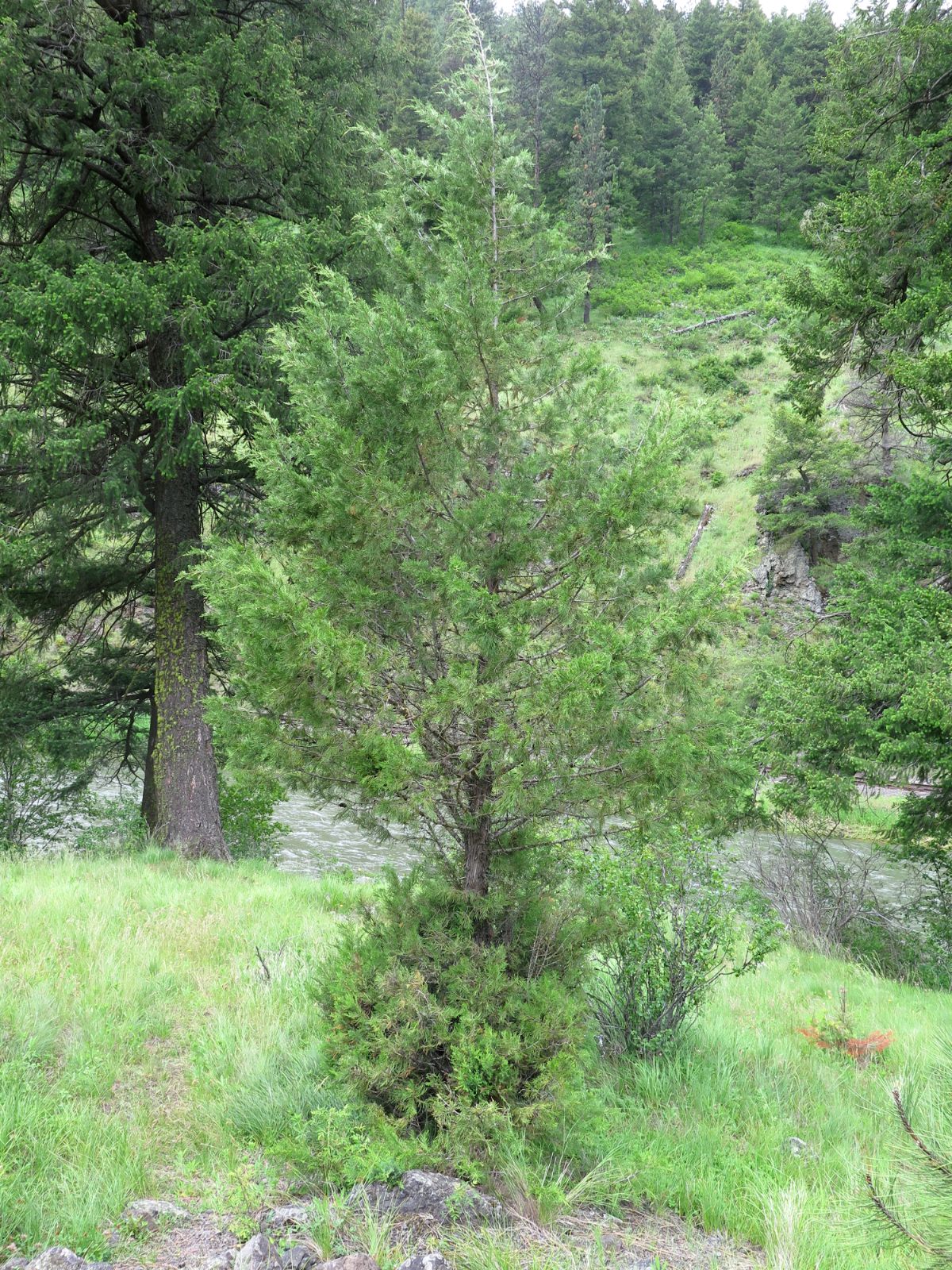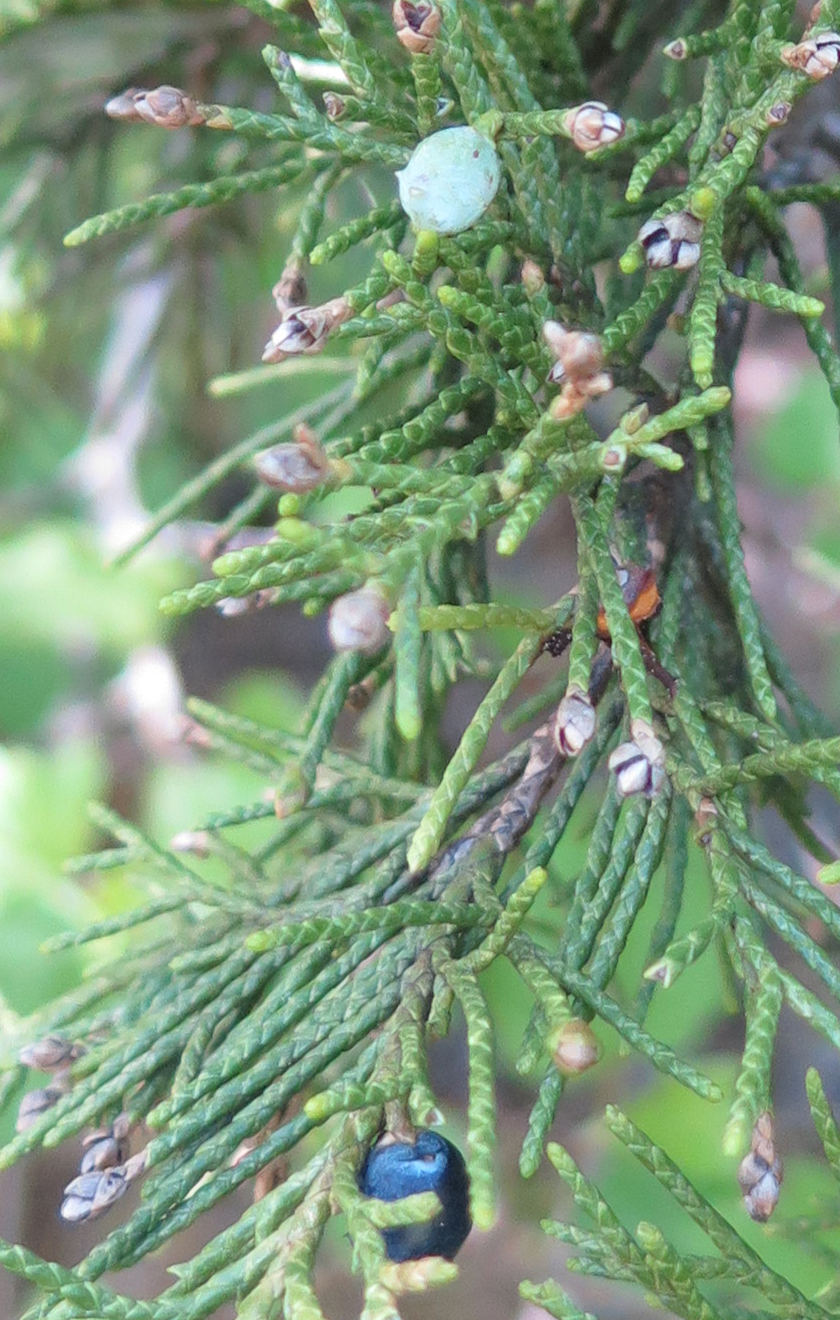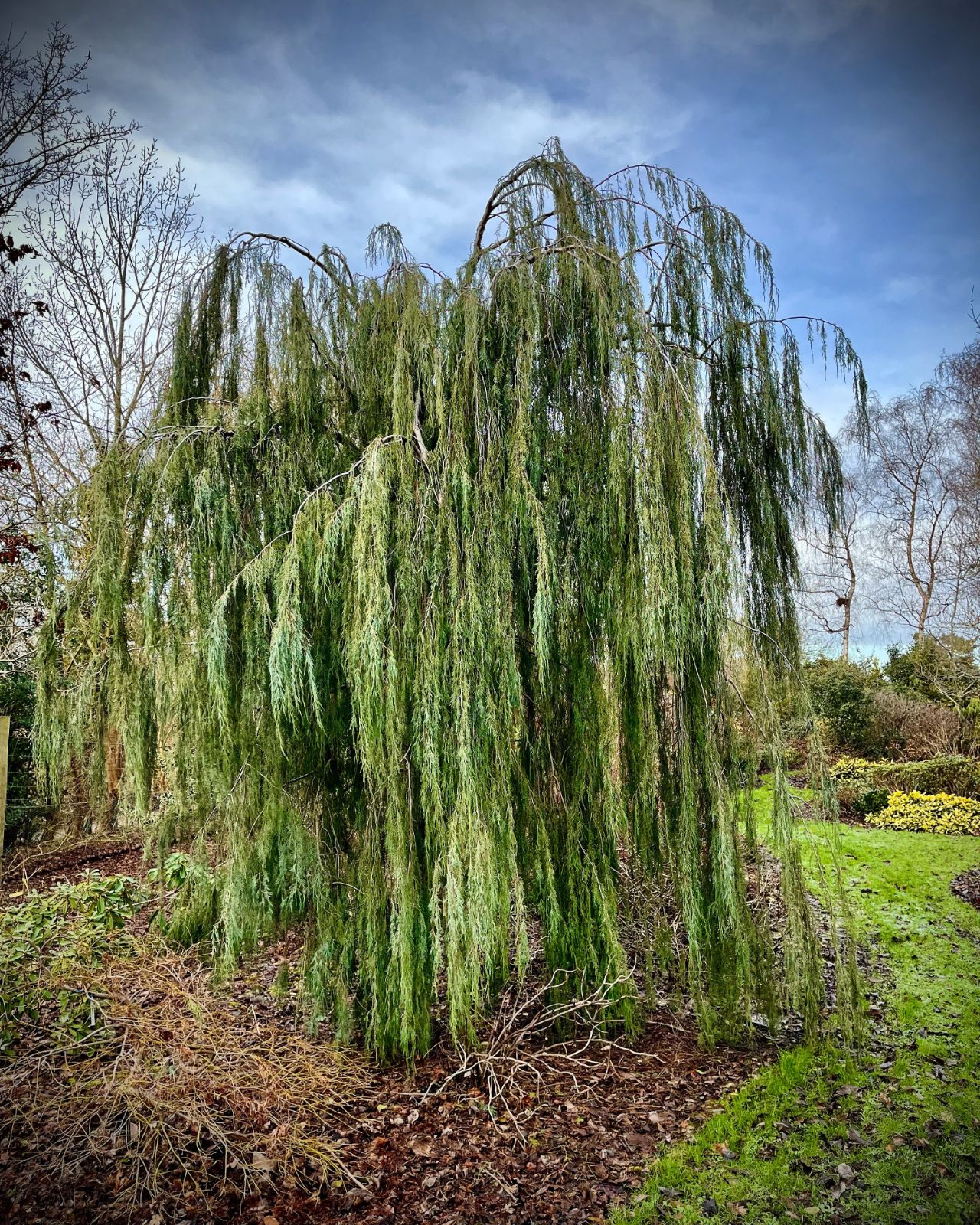Juniperus scopulorum
Credits
Article from Bean's Trees and Shrubs Hardy in the British Isles
Recommended citation
'Juniperus scopulorum' from the website Trees and Shrubs Online (treesandshrubsonline.
Genus
Synonyms
- J. virginiana var. scopulorum (Sarg.) Lemm.
Other taxa in genus
- Juniperus bermudiana
- Juniperus cedrus
- Juniperus chinensis
- Juniperus communis
- Juniperus conferta
- Juniperus deppeana
- Juniperus drupacea
- Juniperus excelsa
- Juniperus flaccida
- Juniperus foetidissima
- Juniperus formosana
- Juniperus horizontalis
- Juniperus komarovii
- Juniperus occidentalis
- Juniperus oxycedrus
- Juniperus phoenicea
- Juniperus pingii
- Juniperus procera
- Juniperus procumbens
- Juniperus recurva
- Juniperus rigida
- Juniperus sabina
- Juniperus saltuaria
- Juniperus semiglobosa
- Juniperus squamata
- Juniperus thurifera
- Juniperus tibetica
- Juniperus virginiana
- Juniperus wallichiana
A tree up to 40 ft high, forming a round-topped head of branches, its trunk often dividing near the ground; bark reddish brown; young shoots slender. Leaves scale-like, closely pressed to the stem, overlapping, arranged in pairs and altogether very like those of J. virginiana. There is on the back of each leaf a usually well-defined gland. Fruits globose, 1⁄4 in. wide, covered with a bright blue bloom, ripening the second year, carrying one or two seeds.
Native of the western United States, where it represents the J. virginiana of the eastern States. That species is closely akin to it but is well distinguished by ripening its seeds the first season. J. scopulorum, too, has only six stamens to each male flower, whilst J. virginiana has ten to twelve. The former, which was made a species by Sargent in 1897, is quite hardy, but owing to its similarity with J. virginiana has not obtained much notice from cultivators, and although it was introduced in 1839, is quite uncommon today. Numerous cultivars have been named in the United States, some of them dwarf.
From the Supplement (Vol. V)
Numerous selections of the Rocky Mountain juniper have been raised in the USA, but are of doubtful value in this country for general garden use. The best known is ‘Blue Heaven’, with grey-blue foliage and of narrowly conical habit, raised in Nebraska, but this has been a failure in some gardens, probably from lack of sun and too much moisture. For ‘Skyrocket’, which may belong here, see J. virginiana.



